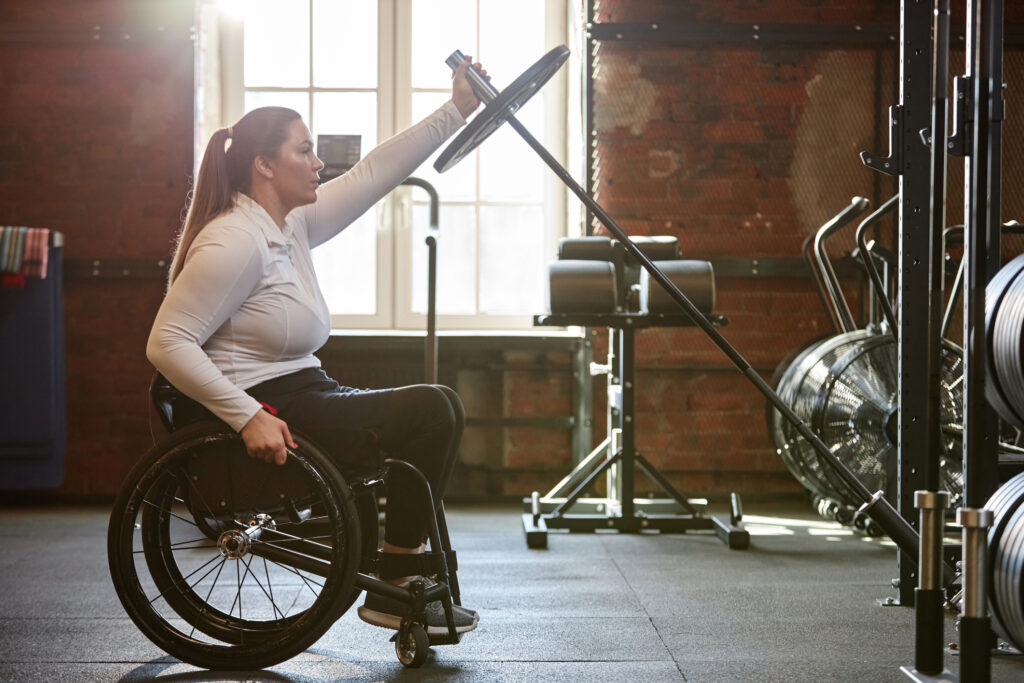Camraderie might provide support when you’re trying to drop five pounds or train for a triathlon. But it turns out competition is better. Much better.
If you want to shave a minute off your 5K or add 20 seconds to your plank time, research shows that striving not to be the loser can be quite motivating.
In a 2011 study to determine how competition affects endurance performance, researchers found that “competition improved endurance performance, increased anxiety, effort, enjoyment, heart rate and muscle activity.”
Unlike the 2011 study in which participants knew they were involved in a handgrip endurance contest with an actual person, a later investigation in 2015 found that just believing that another subject was involved increased the reaction time for test subjects.
In 2020, researchers found that the reward of setting a PR, that’s personal record for non-runners, didn’t ignite the jets of college students as much as running against a person. “..The subjects’ single best competition sprint trial was significantly faster than the best solo sprint,” and “…even less competitive persons and non-varsity athletes respond competitively when in certain circumstances,” the study concluded.
If you’ve hit a plateau, need motivation, just like to win or want to be designated “King/Queen of the Mountain” (yes, that is a thing), well, there’s an app for that.
Many fitness apps provide support and personal cheerleading with badges or closed circles, but a 2016 randomized controlled trial showed that “social support in online networks was ineffective for increasing physical activity,” but “social comparison was more effective for increasing physical activity.”
Features on competitive apps vary from free options to subscription services to competitions for only steps and running to a broad range that even includes kayaking and wheelchair workouts. One option that caters to building corporate culture and community even offers mindfulness, book reading and finance competitions.
So, for winners who need to win, here are a few options:
Garmin
Garmin Connect, which is free, allows you to compete against a friend group you curate. The two types of challenges include steps and distance. The app awards badges for specific activities, and you can compare your awards to the achievements of your group members.
For no monthly fee, Garmin Coach provides personalized workouts and coaching advice. Garmin Connect will work without purchasing a Garmin watch, but not all of the app’s features and functions will work without the watch. For example, it won’t capture biometric data such as heart rate, blood oxygen level, sleep data and workout intensity.
The Garmin watch also includes wheelchair physiology data. Wheelchair users enter personal data when setting up the watch, and the device makes assessments about fitness to provide appropriate personalization.
Garmin Connect+, which costs about $7 a month or $70 a year, includes all features available on Garmin Connect. But it also provides an additional personal performance dashboard and insights generated by AI. Both options include the LiveTrack function that uses GPS to allow you to send your exact location to selected contacts while you’re hiking, running or biking.

Determine if Garmin can facilitate competitive tracking and leaderboards for the activity that your friend group wants to create a challenge for, such as pilates or weightlifting. Garmin’s site states that distance challenges are available for running, cycling, walking and swimming.
Rival – Compete With Friends
This app’s name goes to the heart of what takes competition and the drive to win to the next level. In 2014, a New York University business professor investigated how performance changed when a person competed against an individual they regarded as a rival.
He concluded that there’s “real scientific evidence that rivalry can improve motivation,” and that “competitive behavior can vary based on prior interactions between competitors.” Think Rafael Nadal and Novak Djokovic level rivalry.
The free Rival app offers a neon green crown to the person who bests competitors in a rivalry. Competitions include most steps, calories burned, miles, push-ups, sit-ups and weight lifted.
Its description leans into dueling language (e.g., “battle for the crown), and it boasts concurrent intel on fellow contenders. “Never miss a beat with real-time notifications. Get alerted whenever your rivals make a move or log their progress,” it promises. “It’s the nudge you need to stay one step ahead!”
StepUp
This app does what its name says and nothing more. It counts steps. It encourages you to up your performance by enlisting a group of friends for competitions. Groups can accommodate as many as 1500 users, and the easy signup process involves responding to a link via email or text.
There’s no subscription fee. StepUp features a leaderboard that allows you to customize date ranges for challenges, and it lists steps and distance. Challenge durations vary from a few days to a full year.
Strava
Comprehensive. Competitive. Customized. Compared to other apps offering challenges, Strava is all of those things. For a price.
Subscriptions range from $40 a year for students to $150 a year for a combination subscription for Strava and Runna, a running coaching app that Strava acquired in April. The app also offers family memberships. Teachers, medical professionals and military members get a 25% discount.
Here’s what makes it comprehensive: Strava tracks 49 activities, ranging from pickleball to inline skating to windsurfing. Like Garmin Connect, it accommodates wheelchair users. Additionally, its real-time map provides a heads-up for what lies ahead on your biking or running route. It lets you know that a steep incline or gorgeous view awaits you.
About two million people a month sign up for Strava, according to a 2022 report from The Guardian. So there are more than 150 million people from 185 countries against whom subscribers can compete.
The foundation for competition is segments – specific routes, paths and climbs with designated start and end points. Strava users are competing and comparing themselves to every subscriber who traverses the same segment. It could be a specific mountain biking trail in Colorado or a jog in the Alps.

Artificial intelligence generates the customization. The app uses your performance data to produce insights about your workout. Then it uses its database of activities to personalize challenging routes or activities.
Stridekick
This free app offers prizes for winning challenges – tangible prizes, not virtual badges. The rewards vary from a gift card for coffee to a spa day.
Stridekick measures steps, distance and activity minutes. For the latter, the activity must be rigorous enough to elevate your heart rate. It might not detect slow walks. It will register vigorous walking, running and dancing.
You can establish private challenges with a group of friends, compete in existing contests or participate in the apps’ online organized class competitions.
Strive
The app primarily tracks steps, but it also features seven established contests: miles logged, body fat lost, steps, calories burned while moving, weight loss, minutes of exercise, BMI reduction and loss of body fat.
It provides suggestions for competitions with your partner, coworkers, family or friends. The app sends push notifications and reminders to keep you on track during contests.
Strive focuses on 30-day challenges that its developers claim will jumpstart a transformation. Within the app, you’ll find a blog that offers specific exercise programs for targeted toning and muscle building, as well as nutritional advice.
The 30-day workout challenge is a five-week, six-day-a-week plan that includes three days of cardio, and one day each of upper body, core and lower body.
YuMuuv
This app caters to workplace competition. You don’t pay for it, your employer does. YuMuuv tracks and rewards contests for physical activity, but its stated goal is to foster community, support corporate culture and encourage wellness.
It bills itself as a “proven step to increase happiness and engagement.” While there are leaderboards, the testimonials and the app’s website suggest friendly, supportive challenges, not fierce, heated challenges and alerts that inform you a competitor is exercising while you’re channel surfing.
For example, one testimonial reads, “People send photos of their walks –lovely morning walks on the beach or with their dogs in the park. It creates such a positive atmosphere and connection… It’s really become part of our work culture.”
If competition motivates you, investigate the various features of each app and consider cost, group size, privacy and safety measures and your objective.
Having clarity about what you want to achieve, how and with whom can lead you to the best option for you and your contenders. Several offer free trials, allowing you to give it a test run without spending money.



